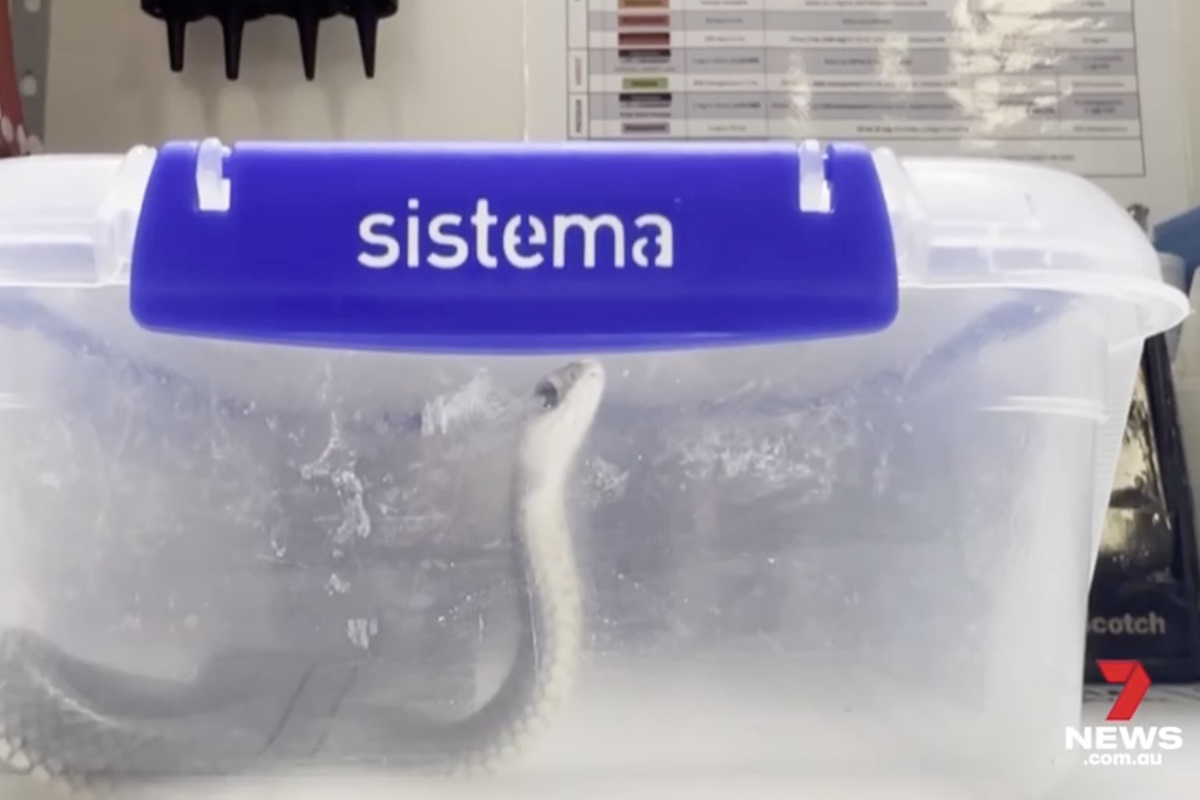

If you’re bitten by a venomous snake, the last thing you should do is capture the animal and bring it to the emergency room with you. This is the plea from Wide Bay, an Australian hospital. Apparently, hospital staff don’t want to deal with dangerous animals while they’re trying to save people’s lives—including yours.
Videos by Outdoors with Bear Grylls
An incident earlier this month prompted the warning. A snakebite victim reportedly handed emergency staff at an Aussie hospital “a plastic food container with a small eastern brown snake inside peering back at them.” Eastern brown snakes are highly venomous animals, and their particularly potent venom can kill a human in a half-hour or less. It’s the species responsible for the most snakebite fatalities in Australia.
Imagine being an emergency room professional and being handed a Tupperware container with one of these snakes inside. No thanks. Apparently, this is not the first time something like this has happened.
According to Dr. Adam Michael, Wide Bay’s director of emergency medicine, in an interview with local news, medical professionals do not need to identify the snake to figure out how to treat snakebite victims.
He said: “We can determine if you need anti-venom and if so, what anti venom you need based on clinical signs, blood tests and also the snake venom detection kits that we keep here at the hospital.”
“We’re actually not trained to identify snakes, and so it’s not helpful,” Michael adds. “It just puts the staff at risk as well as yourself.”
Tips for Venomous Snake Bites
If a venomous snake bites you, seek medical help immediately. If possible, you can take a photo of the snake from a safe distance (or have someone do this for you). Do your best to keep your heart rate down. Don’t apply a tourniquet, suck out venom, or take pain relievers while you wait for medical help.









